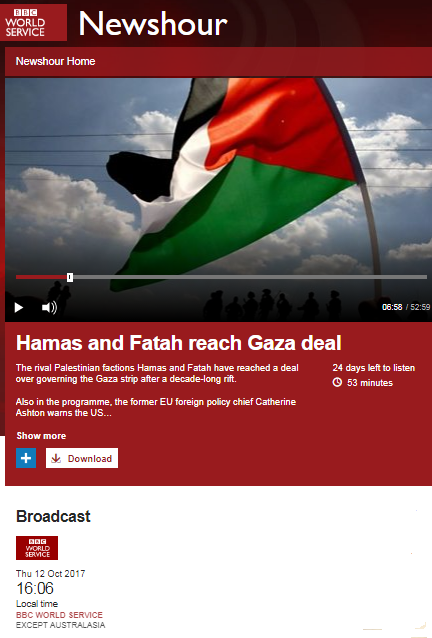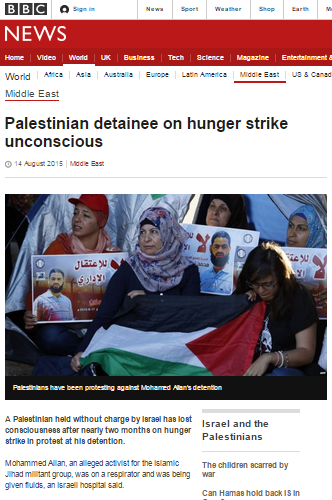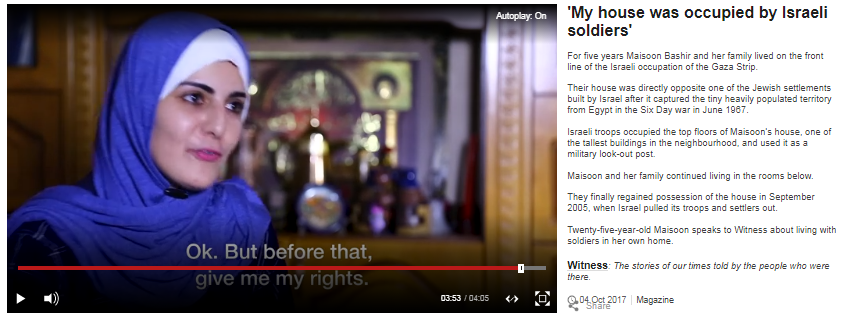As noted here last month, in a report for the BBC World Service radio programme ‘Newshour’ the BBC’s chief international correspondent Lyse Doucet inaccurately informed listeners that Hamas had made changes to its charter.
Doucet: “Well I remember the elections in 2006. Fatah – and indeed the outside world, including the United States – were shocked that Hamas had won these elections and so the talk was let them bring them in to the democratic process; let them show that they can be a legitimate governing force. By the next year, however, they had completely taken over the Gaza Strip and for the last decade there has been that rift. Now since that time, Hamas has constantly been under pressure to change its founding charter which still talks about the destruction of the State of Israel. The listeners may remember that they made some changes to that charter in the last year. It was seen as a huge breakthrough by Hamas but still it fell short for Israel.” [emphasis added]
As was noted here at the time:
“Doucet’s claim that Hamas “made some changes to that charter” is of course inaccurate. The policy document launched in May did not replace or change the existing charter at all – as the BBC News website reported at the time. Unfortunately for BBC World Service audiences, however, this is not the first time that they have heard the falsehood now promoted by Doucet.”
BBC Watch submitted a complaint on that issue. The response received reads as follows:

“Thank you for getting in touch and your complaint that there was a factual inaccuracy in Lyse Doucet’s report broadcast in Newshour on 12/10/2017. I forwarded your email to the editor and team at Newshour. Below is the reply…
The programme was reporting on the emerging deal between the rival Palestinian factions Hamas and Fatah that was unfolding as the programme went on air.
This was a significant story. Lyse Doucet gave a brief historical context to the deal, ranging from the Palestinian elections in 2006 to the military takeover of the Gaza Strip in 2007 and the current problems with electricity supply related to the political rift with the Fatah administration in Ramallah.
Lyse clearly pointed out that Hamas’s founding charter still talks about the destruction of the state of Israel, and that Hamas still sees itself as a resistance movement.
Lyse referred to changes in the Hamas charter last year, which represented a significant shift in the movement’s public stance and were important in that regard.
But Lyse stressed the point that Hamas showed no sign of accepting the legitimacy of Israel.
I hope the above allays the concerns you have raised.” [emphasis added]
As we see, despite one BBC department – the BBC News website – having accurately reported at the time that “Hamas says [the new document] does not replace the charter”, obviously neither the ‘Newshour’ team nor the BBC’s complaints department understands the significant difference between the Hamas charter and the policy document.
In contrast, media organisations that have corrected inaccuracies concerning the same issue include i24, CNN and Newsweek.
Related Articles:




